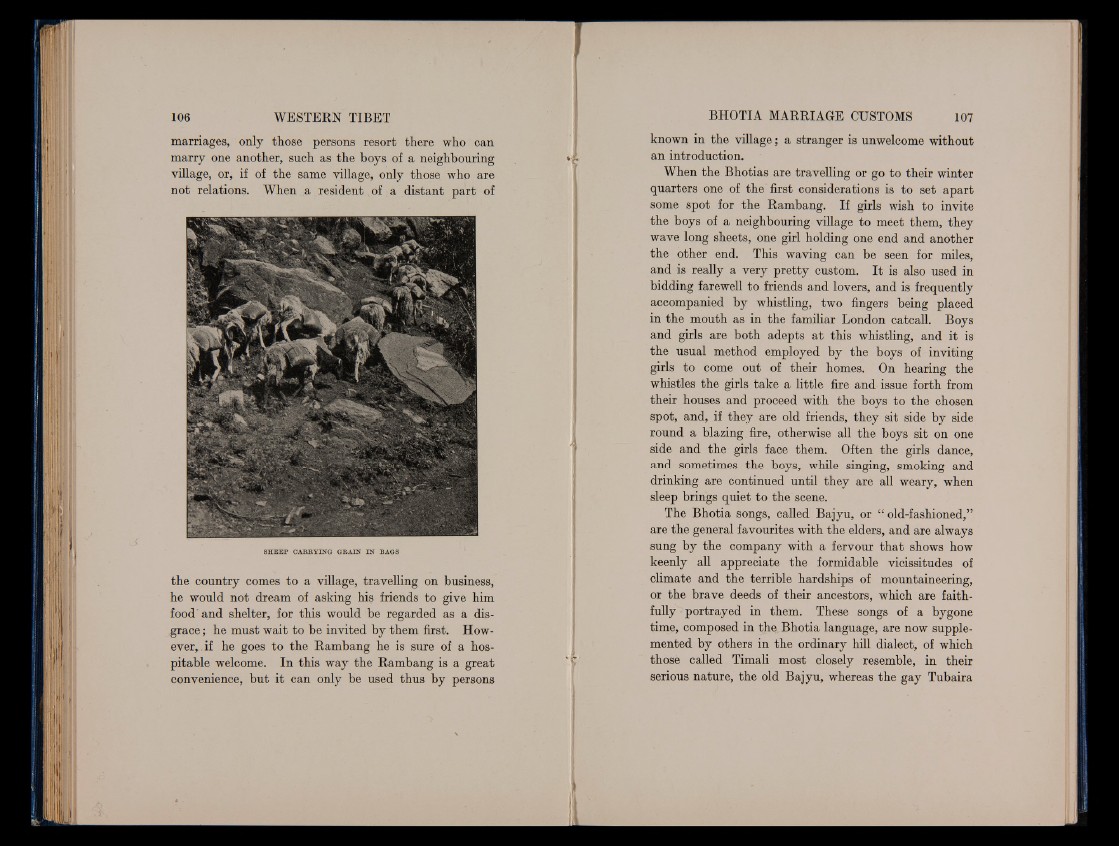
marriages, only those persons resort there who can
marry one another, such as the boys of a neighbouring
village, or, if of the same village, only those who are
not relations. When a resident of a distant part of
SHEEP CARRYING GRAIN IN BAGS
the country comes to a village, travelling on business,
he would not dream of asking his friends to give him
food'and shelter, for this would be regarded as a disgrace
; he must wait to be invited by them first. However,,
if he goes to the Rambang he is sure of a hospitable
welcome. In this way the Rambang is a great
convenience, but it can only be used thus by persons
known in the village; a stranger is unwelcome without
an introduction.
When the Bhotias are travelling or go to their winter
quarters one of the first considerations is to set apart
some spot for the Rambang. If girls wish to invite
the boys of a neighbouring village to meet them, they
wave long sheets, one girl holding one end and another
the other end. This waving can be seen for miles,
and is really a very pretty custom. It is also used in
bidding farewell to friends and lovers, and is frequently
accompanied by whistling, two fingers being placed
in the mouth as in the familiar London catcall. Boys
and girls are both adepts at this whistling, and it is
the usual method employed by the boys of inviting
girls to come out of their homes. On hearing the
whistles the girls take a little fire and issue forth from
their houses and proceed with the boys to the chosen
spot, and, if they are old friends, they sit side by side
round a blazing fire, otherwise all the boys sit on one
side and the girls face them. Often the girls dance,
and sometimes the boys, while singing, smoking and
drinking are continued until they are all weary, when
sleep brings quiet to the scene.
The Bhotia songs, called Bajyu, or “ old-fashioned,”
are the general favourites with the elders, and are always
sung by the company with a fervour that shows how
keenly all appreciate the formidable vicissitudes of
climate and the terrible hardships of mountaineering,
or the brave deeds of their ancestors, which are faithfully
portrayed in them. These songs of a bygone
time, composed in the Bhotia language, are now supplemented
by others in the ordinary hill dialect, of which
those called Timali most closely resemble, in their
serious nature, the old Bajyu, whereas the gay Tubaira